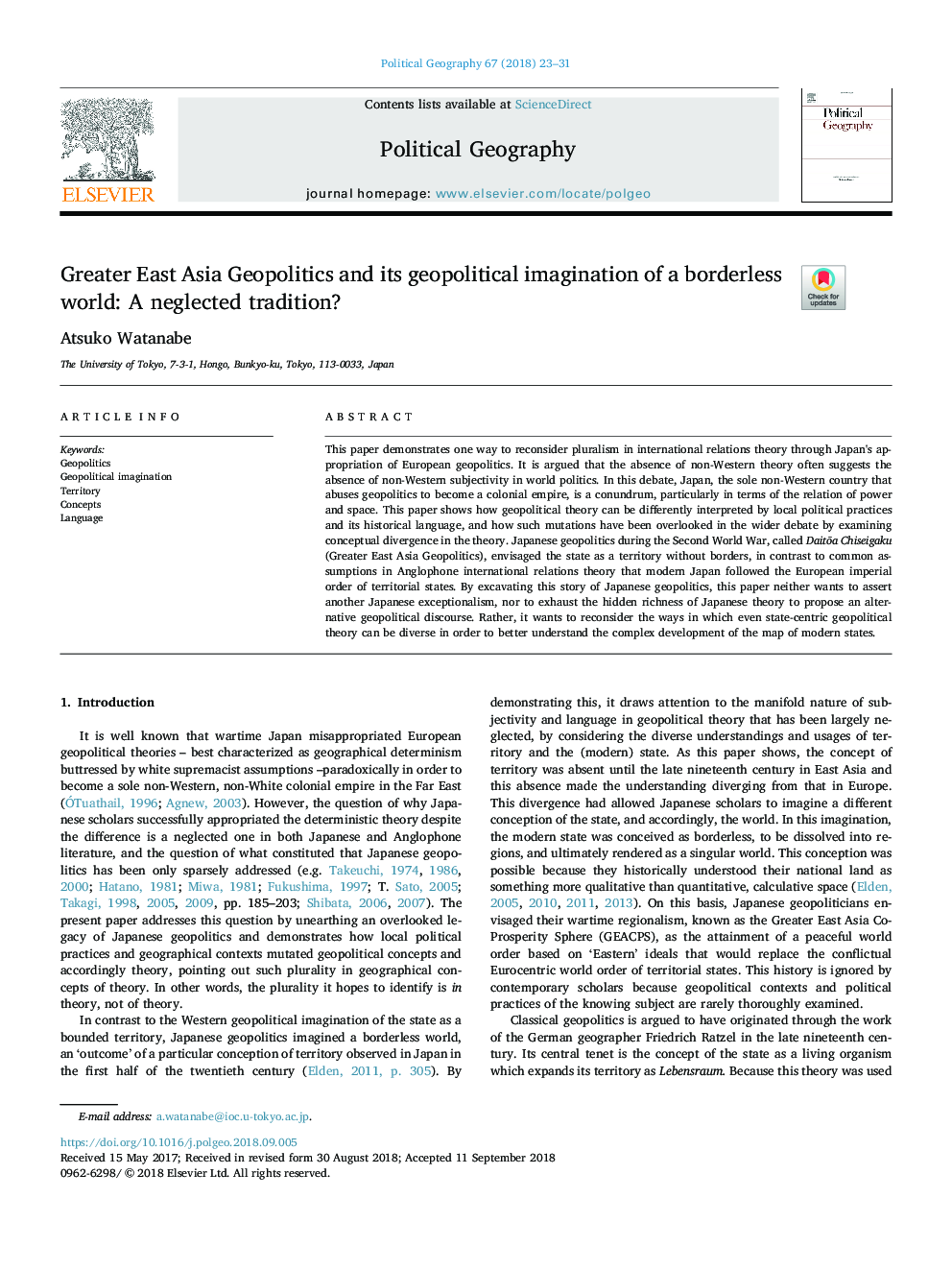| Article ID | Journal | Published Year | Pages | File Type |
|---|---|---|---|---|
| 11027517 | Political Geography | 2018 | 9 Pages |
Abstract
This paper demonstrates one way to reconsider pluralism in international relations theory through Japan's appropriation of European geopolitics. It is argued that the absence of non-Western theory often suggests the absence of non-Western subjectivity in world politics. In this debate, Japan, the sole non-Western country that abuses geopolitics to become a colonial empire, is a conundrum, particularly in terms of the relation of power and space. This paper shows how geopolitical theory can be differently interpreted by local political practices and its historical language, and how such mutations have been overlooked in the wider debate by examining conceptual divergence in the theory. Japanese geopolitics during the Second World War, called DaitÅa Chiseigaku (Greater East Asia Geopolitics), envisaged the state as a territory without borders, in contrast to common assumptions in Anglophone international relations theory that modern Japan followed the European imperial order of territorial states. By excavating this story of Japanese geopolitics, this paper neither wants to assert another Japanese exceptionalism, nor to exhaust the hidden richness of Japanese theory to propose an alternative geopolitical discourse. Rather, it wants to reconsider the ways in which even state-centric geopolitical theory can be diverse in order to better understand the complex development of the map of modern states.
Keywords
Related Topics
Social Sciences and Humanities
Arts and Humanities
History
Authors
Atsuko Watanabe,
